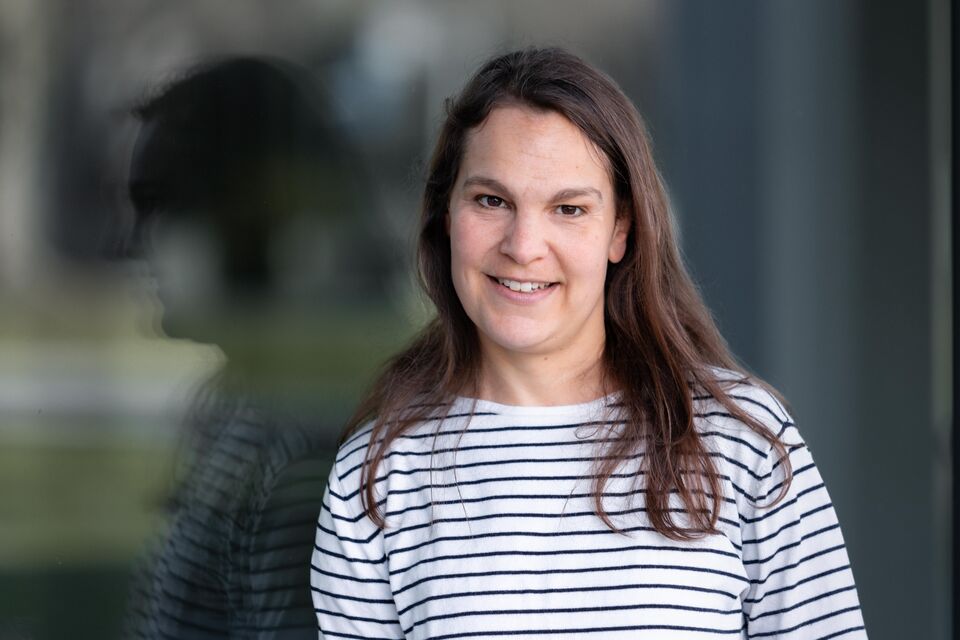
First salary – what now?
Finally! You've successfully completed your education, written job applications, attended interviews and now finally, your long-awaited first job. And with it, the joy of your well-earned salary.
Ta-da! Your salary arrives in your account on time on the 25th of the month; your very own money! To begin with, the fixed income at the start of your career almost feels like you've won the lottery. Well, it might not be the jackpot, but compared to a student job or apprentice wage, it's really impressive to be receiving a regular "proper" paycheck. However, this new capital also brings responsibility with it, in that you now have to set priorities and manage your earned money wisely.
What's the difference between gross and net salary?
Career starters quickly realize that they have less money than they first thought. That's because their paycheck doesn't tally with what was agreed during the interview. Although your company actually pays you that amount, your salary is subject to a few deductions, such as social security insurance, accident insurance, daily sickness benefits insurance etc.
- Gross salary: Amount that your employer pays for the work you have performed. Including social security contributions and other insurance premiums.
- Net salary: Amount left over after all deductions and transferred to your bank account.
Which salary deductions can I expect?
In Switzerland, you must expect a deduction of 14 - 20 percent on average, but there are massive differences. Basically, the deductions rise as employees get older. The greatest share of this is accounted for by social security payments (in german). All deductions have to be listed on the monthly salary slip.
- 4.35% for old-age and survivors' insurance (OASI)
- 0.7% for disability insurance (DI)
- 0.225% for compensation for loss of earnings (EO)
- 1.1% for unemployment insurance (UI)
- Occupational and non-occupational accident insurance (percentage depends on insurance policy)
- Daily sickness benefits insurance (percentage depends on employment contract)
- From age 17, gainfully employed persons earning at least CHF 22,680 are obliged to join the pension fund (Pillar 2) to insure themselves against the risks of death and disability and to pay contributions accordingly. From age 24, they also save for their retirement, with the contributions being borne proportionately by the employee and employer. The amount of contributions depends, among other things, on your salary and age.
Non-occupational accident insurance is only compulsory for anyone working more than eight hours a week. Daily sickness benefits insurance is voluntary but very popular.
How do I draw up a budget?
Planning your finances may seem tiresome and complicated at first glance, particularly for young people who are particularly pleased to get their first paycheck. But it's worth getting your finances in order right from the start. Follow these seven simple steps so that you always have an overview of your money:
- Write down your income: Note down all income sources such as salary, continued salary payments, annuities etc.
- Categorize expenses: Sub-divide your expenses (by month or year) into categories such as housing, insurance, mobility etc.
- Set priorities: Set priorities by specifying which expenses aren't necessary and where you can make savings if need be.
- Define savings goals: Set yourself clear savings goals for emergencies, large acquisitions, Pillar 3 etc.
- Stay flexible: Give yourself a bit of flexibility in your financial planning so that you can cover unexpected expenses.
- Track your expenses: Use tools such as this budget app (in german) or Excel tables to track your expenses and spot discrepancies early.
- Review your budget: Adjust the individual entries as soon as your financial situation changes.
How can I plan for old age?
"Now I can afford something for the first time in my life, but I'm supposed to think about my pension instead when I get my first paycheck?" Of course, this thought seems absurd to young people, but it's justifiable from a financial perspective. This is because if you want to maintain your accustomed standard of living in old age, you should start saving for it as soon as possible. The decisions you make today have a crucial impact on the rest of your life. You can also benefit from a savings plan long before retirement, for instance regarding self-employment or home ownership. Pension funds also offer additional savings potential and options for financing residential property. Takeaway: You should definitely enjoy your salary! Spoil yourself with something that gives you pleasure. But think about the far-off future too. In general, you can follow these tips:
1. Close any contribution gaps
After completing your studies, you should check whether you have actually paid the OASI minimum amount every year. The best thing is to ask for an individual account statement from your compensation office. Contribution gaps that are less than five years old can be closed retrospectively. Failure to make a back-payment in time can result in a reduced pension under certain circumstances.
2. Check the level of income and pension fund
Do you earn more than CHF 22,680 per year (as at 2026)? This is because it is only at this threshold that you and your employer are required to pay contributions into the pension fund (Pillar 2) and therefore save for your retirement. If your salary is below the threshold, for example because you work part-time, check whether you can increase your working hours and thus your salary in order to be insured in your employer’s pension fund. If you are below the threshold due to working low hours at two different companies, find out whether both salaries can be insured in the same pension fund.
Depending on the pension fund, part-time employees may also be at a disadvantage in the so-called “coordination deduction.” For part-time work, the deduction is higher in percentage terms, which reduces future retirement benefits. Some pension funds also adjust the coordination deduction to reflect working hours, which places part-time employees in a better position.
3. Save money in your own pot
As soon as you have your first job, you should think about a Pillar 3a account with your bank or a pension plan with your insurer. The latter can be combined with individual risk cover. But whether it's with a bank or an insurance company, the main thing is that you're saving for your future. Particularly attractive: you can deduct the amount paid in from your taxable income. This way you can save a tidy sum over the years.
4. Let your money grow
There are still decades to go until you retire. Use this time to invest your pension capital in securities. This naturally carries risk, as the financial markets are always subject to certain fluctuations. But if the money is invested over a long period, the yield from securities such as equities is normally the most attractive. You can find the most important information about investing money in our guide.
You can also harness the potential for additional savings in your pension fund by making voluntary purchases. You then benefit from interest and compound interest over the long term. Although the return tends to be lower than from securities, you also bear significantly fewer risks.









